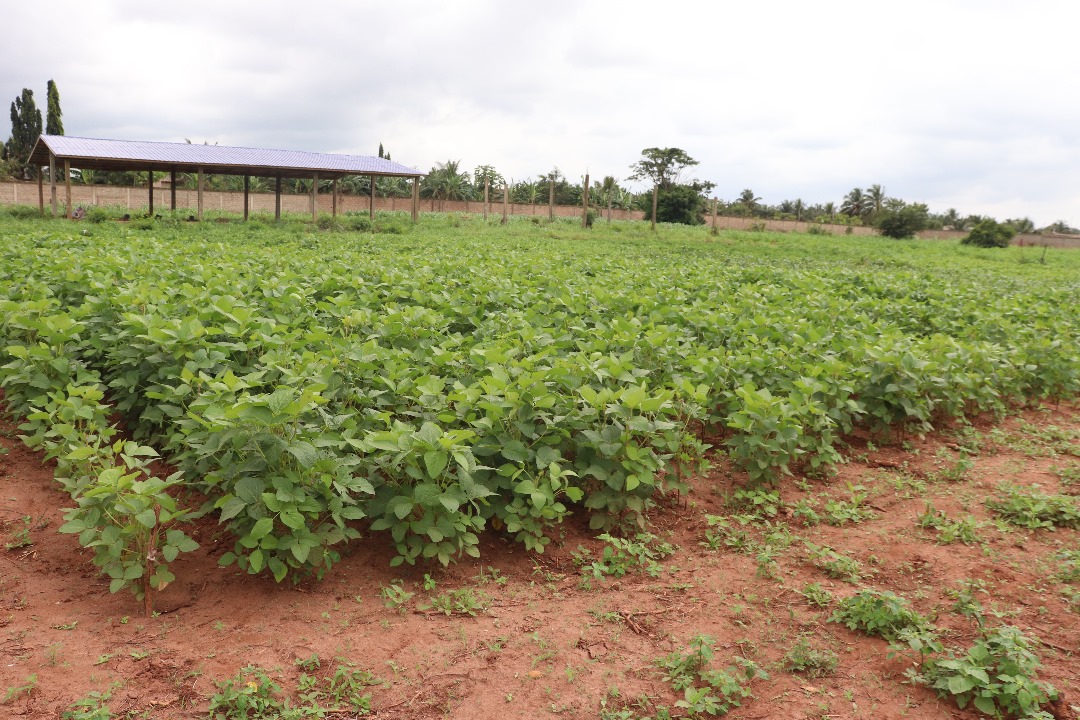News
CORAF is an important organization working to improve food and nutrition security in West Africa. CORAF's recent initiatives are a promising sign of its determination to meet the challenges facing West Africa.
The ITRA technopark transforms farming practices

Published on: 09/04/2024
In Davié, Togo, a quiet but significant agricultural revolution is taking shape. At the heart of this transformation is the Agricultural Technology Park of the Institut Togolais de Recherche Agronomique (ITRA), a place of learning and innovation that is changing the game for local farmers. In this park, agricultural technologies and innovations are placed at the service of agriculture to help improve agricultural productivity, and the food and nutritional security of populations.
Demonstration site for agricultural technologies and innovations
ITRA's agricultural technology park, located at the CRAL Littoral agricultural research center in Davié, is the fruit of a fruitful collaboration with CORAF under the World Bank-funded Food System Resilience Program (FSRP). The park is home to a multitude of high-yielding crop varieties, ranging from corn and soybeans to rice and sorghum. Several high-yielding varieties are highlighted in the park. The creation of this park is aimed at disseminating technologies and innovations resulting from research.
"This park is one of the tools for disseminating research-generated technologies to farmers. This park was built thanks to the support of CORAF within the framework of the FSRP to transfer technologies to producers", asserts Soulé Bifai Aboudoulaye, coordinator of the Davié agricultural technology park.
What makes the Technopark so special is not only the crops it houses, but also the awareness-raising programs and guided tours it organizes. Aware that a lack of knowledge of research results and a lack of mastery of good agricultural practices are major obstacles for local farmers, the Technopark's initiators have placed great emphasis on communication and on tailoring the programs to the specific needs of each region.
Distribution of high-yielding varieties
"ITRA agents brought us a new rice seed, the Exbaika variety, with a 120-day cycle and a potential yield of 8 tonnes per hectare. We tested it and for a first experience, we were satisfied. The rice I produced before was 4 months old. What's more, it rained this year," says Aglo Komi, a rice producer in Akodésséwa, Togo.
To invite growers to discover and appropriate the innovations at the park, open days are organized with the support of CORAF. A variety of communication media, from television to social networks and local meetings, have also been used to inform farmers about the benefits of new agricultural technologies. Guided tours have been organized to enable farmers to experience these new techniques in the field, boosting their understanding and confidence.
Apélété Fansouwodji, a local grower, says: "What delighted me was that we used to produce large sorghums, and the yield wasn't always up to scratch. But today, thanks to our visit to the Davié technopark, we've seen that there are small sorghums that produce well.
The Technopark's success is not limited to its impact on local farmers. By mobilizing local stakeholders and promoting transparent, inclusive communication, the park creates synergy between the various players in the agricultural sector. This holistic approach aims to extend the park's benefits over the long term, transforming the way agriculture is practiced in Togo.
Other news
View allTowards a strengthening of CORAF's actions in...
A delegation from CORAF, led by its Chairman of the Board, Dr Kalifa TRAORÉ, its Executive Director, Dr Moumini SAVADOGO, and its...
A strong plea for African women entrepreneurs...
Many women in West and Central Africa live in an unfavorable environment, with limited access to information,...
CORAF strengthens its partnerships in Burkina Faso...
As part of its mission to strengthen institutional and technical collaboration, a delegation from CORAF, led by its Director,...
Training today's and tomorrow's researchers:...
When AMABA Akéta Akpadji Rébecca completed her Master's degree in Plant Biology in Togo, she was faced with uncertainties about...